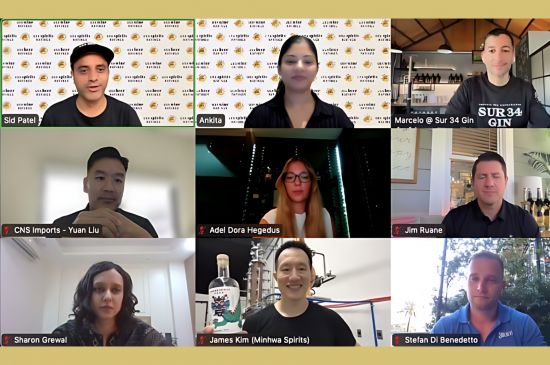
04/11/2022 Employing people from different backgrounds and cultures not only makes good business sense but also helps with recruitment.
It’s been proven beyond doubt that ethnically and racially diverse workforces are more likely to enjoy financial returns above national industry averages. This is corroborated by research from management consultants McKinsey, which found that of 366 companies analsyed, those in the top quartile for racial and ethnic diversity were 35% more likely to have a higher-than-average turnover. Meanwhile, companies in the top quartile for gender diversity were 15% more likely to outperform their industry peers.
Clearly, correlation does not equal causation – greater diversity doesn’t automatically lead to soaring profits - but the link indicates that companies committed to a more diverse workforce are undoubtedly more successful.
“More diverse companies, we believe, are better able to win top talent and improve their customer orientation, employee satisfaction, and decision making, and all that leads to a virtuous cycle of increasing return,” states the report.
While the business case for employing a more diverse workforce seems cut and dried, the reality for most UK hospitality businesses is that many are struggling to recruit anyone at all, let alone be agonising about how diverse that workforce is.
However, while the current recruitment situation is tough, it is still worth bearing all this in mind when you are in a position to take on a new member of staff.

It’s important for interviewers to be aware of their own unconscious bias, and to challenge their inbuilt preconceptions
It’s human nature to hang out with people who are like us, and who are part of our “tribe”, and this applies to recruitment as well as anywhere, with the natural tendency to recruit in our own image. However, modern workplaces should look beyond their traditional networks when searching for staff as it’s a missed business opportunity if your clients and consumers are of different backgrounds and genders but your team is homogenous. “Diversity really helps teams thrive,” confirms the McKinsey report. “Even an all-female team of the same ethnicity is not as successful as a mixed team.”
If you are recruiting from the same small pool of talent, you will inevitably end up putting together a team who all think alike, which is why it’s important that if you want to stay ahead of the game in the increasingly competitive hospitality sector that you start to rethink your strategy.
Being proactive about recruiting staff from a more diverse pool means you widen your access to previously untapped sources of talent. And by hiring from a more disparate range, you show both employees and customers that you reward hard work despite a person’s race, age, creed, social-economic status, and sexual orientation. By exuding meritocracy, you will help to inspire more positive morale amongst your staff, and of course, happy employees pay dividends. By creating a culture in the workplace where workers enjoy coming to, they will be more engaged, helping to keep the entire team motivated to produce their best possible work.
[[relatedPurchasesItems-39]]
The hospitality sector already attracts customers from a wide variety of cultures and backgrounds – so if you want to engage with your customers effectively, your staff should ideally reflect the entirety of your market, and without diversity, that will be difficult, if not impossible to achieve.
As a hotel, bar, or restaurant owner, a diverse workforce increases the likelihood of having a member of staff who better understands the needs of your customers. Tailoring your customer experience to ensure everyone who walks through the door feels as welcome as they possibly could be, is a surefire way of boosting brand loyalty among your clientele.
When it comes to the recruitment process, start off by wording your job ads in such a way that you encourage people with all manner of experiences and backgrounds to apply for your vacancy. It’s essential to have a rough list of skills and characteristics you’re looking for, but it’s also important to be flexible when drawing up your ideal candidate profile. Try and challenge yourself to value transferable skills and be open to various experiences and backgrounds.

Consider whether the applicant’s skills are transferable - customer service experience, for example, is invaluable for workers in the hospitality sector
For example, someone with a background in retail could have a lot to offer the hospitality industry. After all, they’ll have spent a good deal of time building on their customer service skills, problem-solving, and time management, all of which are vital qualities to have when working in the hospitality sector.
Make sure managers or anyone responsible for recruitment are well trained in interviewing techniques, and ensure they are aware of the inherent danger of inadvertent biases that most people unwittingly hold. And be sure to set benchmarks on how interviewers weigh up a potential candidate’s competence and suitability before the interview. When interviewing hospitality candidates, teach the interviewers to look for specific characteristics and skills including customer orientation, stress management, and multitasking, rather than focusing merely on their intuition or ‘gut feeling’.
During the interview, make sure to ask yourself whether you’d be making the same decision if the person’s cultural background were the opposite of what it is. This exercise goes a long way in helping check any prejudices we might unknowingly have.
And if you haven’t already done so, commit to creating a diversity-training program. Each employee should have to take this as part of their onboarding process. If you want to go one step further, host annual refresher training for your current staff members. That way, everyone should be singing from the same hymn sheet. If you need help with getting the training right, book a cultural diversity expert to help you train your employees and consider additional training for supervisory roles.
By equipping your staff with the know-how, you’ll encourage an attitude of respect and tolerance. Work alongside your long-standing employees and get them to mentor younger workers which will help to ensure that your company’s stance on diversity is upheld across the team.
Last but not least, remember to revise your policies regularly, so they reflect the content of your diversity training. This will force you to put what you’ve learned into practice.
Finally, make diversity part of your organization’s DNA, and on your website’s ‘careers page’ include diversity-related content. This could include things such as a mission statement, case studies of individuals from a minority background who have succeeded in their career path, images, and any relevant awards. And if you do have any multicultural and diversity credentials you can boast about, make sure you do so, as this will help attract individuals from more diverse backgrounds and cultures, who will feel more positively towards your organisation. And use social media to spread the word. Share pictures, blog posts, and reviews about the initiatives your company is taking to make your workplace an inclusive outfit.
TAGS:
 The On Trade
The On Trade 








